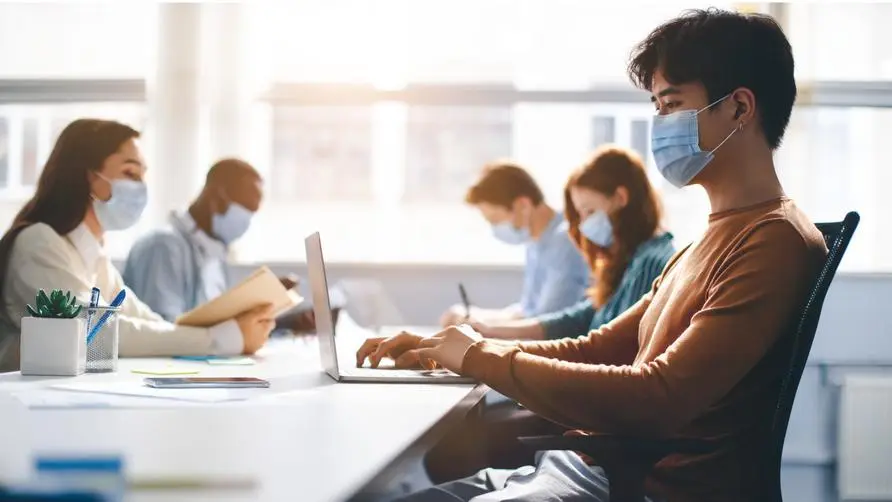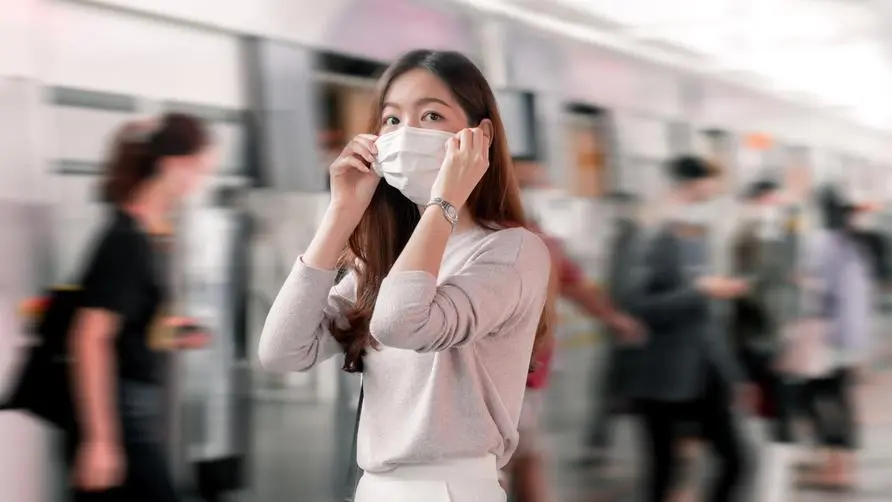Not wearing a mask is equivalent to "exchanging saliva" with others? Is there still a risk of diagnosis after watching movies? "Science": Please continue to maintain epidemic prevention habits!

When the world came to a standstill due to COVID-19 in 2020, only Taiwan was able to maintain normal life for more than a year by relying on correct epidemic prevention policies and the strong help of the “National Mask Team” and many front-line medical staff. Now, when the world is once again at the peak of the epidemic due to the “Delta variant virus” in India, Taiwan is also due to people’s general self-discipline and maintaining “home isolation” under the level three alert, allowing the originally “hot” new coronavirus epidemic to be suppressed for more than 2 days. A temporary lull was achieved within the month.
“Wearing a mask” when going out has long been a national consensus. Even if it is currently in the second level alert state, it is still necessary to wear a mask at all times when going out. If you do not comply with the regulations, you will be fined 3,000 to 15,000 yuan. Even though the epidemic has not completely subsided, the general public is quite abiding by the rules, but there are still a few people who think that the epidemic is over and usually still “walk around” with their whole faces exposed. If you or your relatives and friends are among those “minority people”, it is not a big deal if you don’t wear a mask and lose money in your wallet. If you become an “invisible transmission chain” in the community, things may become really big!
Entering indoor places without wearing a mask is equivalent to “exchanging saliva” with other people.
A paper published in the authoritative American journal “Science” stated that all respiratory infections are transmitted through actions such as breathing, talking, coughing, sneezing, etc. that cause droplets to fly in the mouth. In addition, pollutants in the air Suspended particles are also one of the vectors that spread diseases. The new coronavirus is different from other infectious diseases in that the droplets exhaled by pneumonia patients are enough to cause infection before they have symptoms; and the virus can survive in the air through suspended particles for up to several hours. The most deadly thing is that the new coronavirus is It is easy to be inhaled deep into the lungs. Once a patient is infected, they will start to spread the virus without even knowing it. In other words, if you don’t wear a mask anytime and anywhere, even if you don’t come into contact with other people, virus particles in the air will come towards you unceremoniously!
Dr. Huang Xuan, an intensivist, explained about KTV singing: During normal singing, about 690 droplet particles are produced per second, which is about 2.5 times more than the 270 particles during normal speaking; if you use a “high-pitched” voice Singing will produce 1,480 droplet particles per second, which is 5.5 times more than normal speaking! Everyone singing in unison is equivalent to “eating each other’s saliva.” What’s more, if one of them is diagnosed with pneumonia without knowing it, given the long survival time of the new coronavirus, I am afraid that no one can escape the clutches of pneumonia. Therefore, high-risk venues like KTV cannot open the venue to the public even if the epidemic prevention is downgraded. If you want to party all night in the box, you may have to wait for a while.
As for which places are the most dangerous? The British newspaper “The Times” invited scholars to rate the safety of various indoor and outdoor places - the closer the score is to 0, the safer it is; the closer the score is to 100, the more likely it is to contract pneumonia. Among them, indoor cinemas and indoor bars have the highest scores, ranging from 75 to 80 points respectively.
Why are scores higher in bars and cinemas? Take a movie theater as an example. Even if you don’t have to say a word to watch a movie, you still have to laugh, cry, open your mouth to eat, bite your fingers, etc. during the process. At this time, your mouth and nose are defenseless and open. Widely opened, allowing viruses to take advantage of the opportunity to invade the body; let alone a bar where you need to talk to people at close range. All in all, by not wearing a mask in a confined space, you are creating a breeding ground for the virus.
When will the day of “complete unblocking” arrive? Depends on whether epidemic prevention measures are actually implemented
To put it simply, people who are exposed to the outside for long periods of time to talk or move around are basically constantly exchanging each other’s droplets. In order to block the possibility of any droplet and suspended particle infection, wearing a mask is the most effective way, according to “Science” The article in the journal mentioned that wearing a mask correctly can block nearly 90% of droplets; in addition, maintaining a social distance of 1.5 meters is also very important, because droplets will sink under the influence of gravity. If the distance between the droplets and the droplets can be effectively separated, The distance between other people makes it less likely for droplets to invade the mouth and nose.
Taiwan has been successful in preventing the epidemic because it implemented the mask-wearing requirement early. Now that the epidemic has slowed down, masks have played a key role in blocking community transmission. Without the protection of masks, everyone will become a “walking source of infection” and a mother population in community transmission. By then, Taiwan may return to the level three alert situation one month ago. As the old saying goes, only if everyone fully implements epidemic prevention policies can normal life come sooner!
Source:
“During community transmission, this action will save you…” - Dr. Huang Xuan
How safe is it to go to indoor movie theaters during the COVID-19 pandemic?





